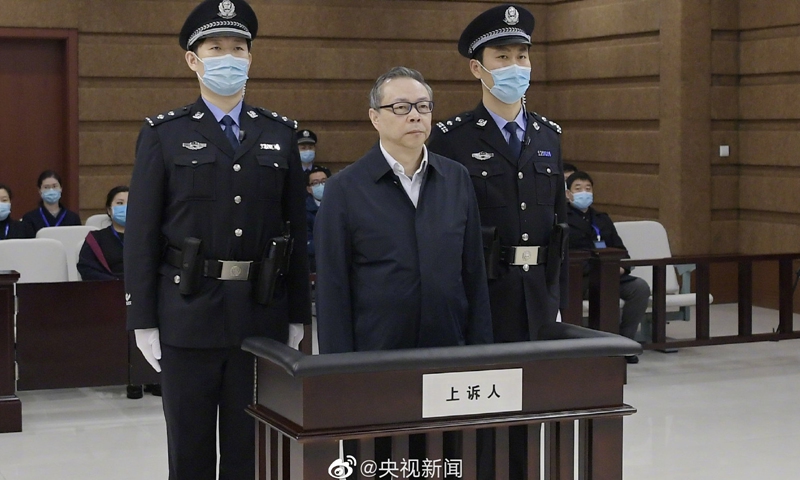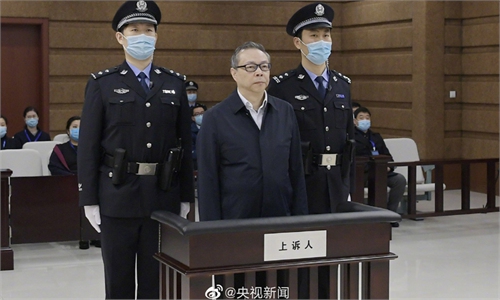Judge explains the reasons for upholding execution of Huarong ex-chairman Lai Xiaomin

Lai Xiaomin, the former chairman of China Huarong Asset Management Co. Photo: Central China Television
Lai Xiaomin, the former chairman of China Huarong Asset Management Co., was executed on Friday. The execution reflects China's attitude to severely punish corruption, a judge said, as Lai was found to have illegally acquired the largest amount of bribes in decades.
On January 5, Lai was sentenced to death by the Secondary Intermediate People's Court of Tianjin for taking staggering bribes and engaging in bigamy, with his political rights rescinded and all assets confiscated.
The High People's Court of Tianjin upheld the death penalty, dismissing his appeal and reporting to China's Supreme People's Court for check and approval.
After the review, China's Supreme People's Court said Lai, a state functionary, took advantage of his duty and position for illegal benefits. He directly or through third parties accepted or solicited money and assets worth nearly 1.79 billion yuan ($277 million), China's Supreme People's Court said.
Lai also took advantage of his positions to embezzle public funds of more than 25.13 million yuan.
While he remained married, Lai was found to have cohabitated with another woman and fathered children, the court added.
On Friday, the chief judge of Lai's case of first instance explained why he was sentenced to death.
A huge amount of bribes totaling nearly 1.79 billion yuan, severe crime plots, particularly causing bad social impact as well as heavy losses for both the country and Chinese people are the main four factors that have resulted in Lai's death sentence, the judge said.
"The bribed amount was the largest since the People's Republic of China was founded in 1949," according to the judge.
Lai's acceptance of bribes lasted from 2008 to 2018, with the number of cases of bribery crimes hitting as high as 22 and ranging from fundraising and contracting projects to getting promotions and job transfers, said the judge.
He was also guilty of corruption and bigamy, and should be punished for several crimes in accordance with the law, so the court decided that Lai should be executed, deprived of his political rights for life, while confiscating his personal property.
Even if Lai made "significant meritorious service," with all above crimes taken into consideration, his "service" is not enough for a lenient punishment, the judge said.
The fact that China further reduced crimes punishable by death, but still retains it for corruption and bribery crimes, embodies China's attitude to severely punish corruption and bribery in accordance with the law, the judge noted.
Most of the 1.79 billion yuan has been recovered, with some of it to be handed over to the state treasury, and others to relevant bodies. The court will continue to recover the balance of the bribes.
Lai met his close relatives before he was executed.
Global Times

